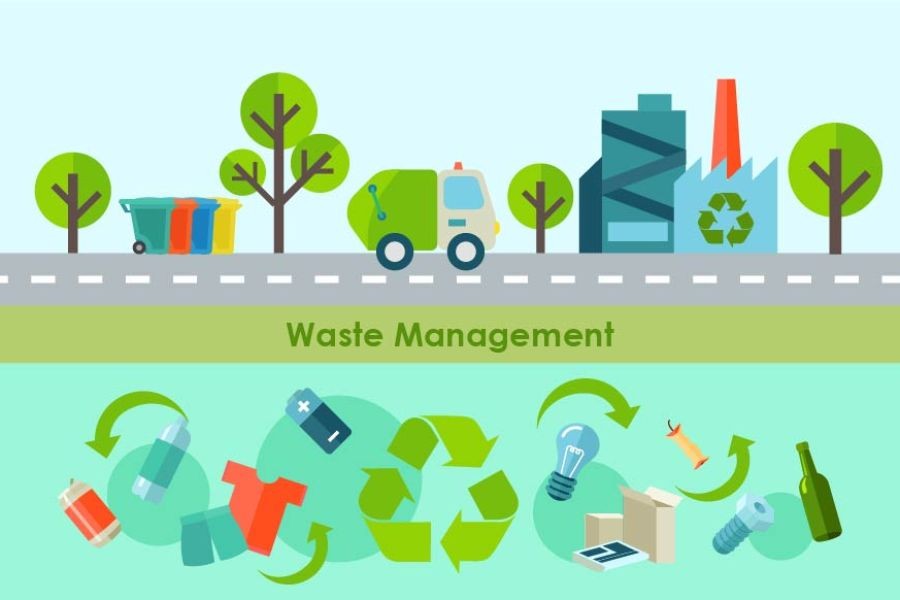In the realm of global sustainability, few countries have made as significant an impact as New Zealand. With its pristine landscapes and progressive policies, New Zealand stands as a beacon of environmental stewardship. But what might surprise many is the depth and variety of its contributions to global sustainability efforts. This deep dive will explore five lesser-known ways New Zealand is shaping a sustainable future, offering insights particularly relevant for healthcare consultants and other industry professionals.
Agricultural Innovations: A Sustainable Farming Revolution
New Zealand's agriculture sector is renowned for its efficiency and sustainable practices. The country has pioneered techniques that reduce carbon emissions while maintaining high productivity levels. For instance, New Zealand's "Pastoral Greenhouse Gas Research Consortium" is leading efforts to develop methane inhibitors, which are expected to cut livestock emissions by 30%. This innovation not only aids in combating climate change but also sets a global benchmark for sustainable farming practices.
For healthcare consultants, the implications are profound. The emphasis on reducing emissions in agriculture aligns with the growing demand for sustainable supply chains in the healthcare industry. By advocating for and implementing similar practices, healthcare facilities can significantly reduce their carbon footprint.
Renewable Energy and Geothermal Power: A Quiet Leader
While many associate green energy with solar and wind power, New Zealand has quietly become a leader in geothermal energy. The country generates over 17% of its electricity from geothermal sources, positioning itself as a top player in sustainable energy. Given the healthcare sector's energy demands, integrating geothermal solutions can lower operating costs and reduce environmental impact.
According to a report by MBIE, New Zealand's renewable energy initiatives have the potential to inspire global healthcare systems to adopt more eco-friendly practices. By utilizing geothermal and other renewable energy sources, hospitals and clinics can not only reduce their energy bills but also contribute to a healthier planet.
Conservation Efforts: Protecting Biodiversity
New Zealand's unique flora and fauna have made conservation a national priority. The government's Department of Conservation employs innovative strategies to protect endangered species and habitats. For example, the Predator Free 2050 initiative aims to eradicate invasive predators that threaten native wildlife. This program is a testament to New Zealand's commitment to preserving biodiversity.
Healthcare consultants can learn from these conservation efforts by promoting biodiversity within healthcare environments. Creating green spaces and utilizing native plants in healthcare facilities can improve patient outcomes and promote well-being.
Sustainable Tourism: Balancing Growth and Conservation
Tourism is a significant part of New Zealand's economy, contributing over NZD 40 billion annually. However, the country has taken strides to ensure that tourism growth does not come at the expense of its natural resources. Through policies promoting eco-tourism and sustainable practices, New Zealand is redefining what it means to be a responsible tourist destination.
The healthcare sector can draw parallels by adopting sustainable practices that balance growth with environmental responsibility. This approach not only enhances the sector's reputation but also meets the increasing consumer demand for environmentally conscious services.
Community-Led Sustainability: Grassroots Initiatives
One of the most remarkable aspects of New Zealand's sustainability success is the role of community-led initiatives. Across the country, local communities are taking charge of sustainability efforts, from community gardens to waste reduction programs. These grassroots movements reflect a cultural commitment to environmental stewardship.
Healthcare consultants can harness this community-driven approach by fostering partnerships with local organizations. By engaging communities in sustainability initiatives, healthcare providers can enhance public health outcomes while strengthening community bonds.
Case Study: Ngāi Tahu Farming – Leading by Example
Ngāi Tahu Farming, a Māori-owned enterprise, has integrated sustainable practices into its operations, from regenerative agriculture to renewable energy use. The company has seen a 20% increase in productivity while reducing its environmental impact, demonstrating the viability of sustainable business models.
For healthcare consultants, this case study underscores the potential of incorporating indigenous knowledge and practices into sustainability strategies. By learning from Ngāi Tahu Farming, healthcare facilities can enhance their sustainability efforts while respecting cultural heritage.
Common Myths & Mistakes
Myth: "Sustainability is too costly for businesses."
Reality: A study by the Reserve Bank of NZ shows that sustainable businesses have a 15% higher long-term profitability due to reduced operational costs and improved brand loyalty.
Myth: "Only large corporations can make a difference."
Reality: Small and medium-sized enterprises (SMEs) can drive significant change. In New Zealand, SMEs adopting sustainable practices have reported a 30% increase in customer engagement (Source: NZ Business Insights 2025).
Final Takeaways
- Fact: New Zealand's sustainability efforts are setting global standards.
- Strategy: Healthcare consultants can integrate New Zealand's sustainable practices into their operations.
- Mistake to Avoid: Overlooking the potential of community-led initiatives in driving sustainability.
- Pro Tip: Collaborate with indigenous communities to incorporate traditional knowledge into sustainability strategies.
Future Trends & Predictions
By 2030, New Zealand aims to achieve carbon neutrality, with sectors like healthcare playing a pivotal role. According to a report from Stats NZ, the incorporation of sustainable practices in healthcare could reduce emissions by 25%, highlighting the sector's critical role in achieving national sustainability goals.
Conclusion
The journey towards sustainability is a collaborative effort, and New Zealand is at the forefront of this global movement. For healthcare consultants, the lessons from New Zealand's sustainability initiatives offer valuable insights that can be adapted and implemented within the sector. By embracing these practices, healthcare providers can contribute to a healthier planet while enhancing their operational efficiency. What strategies will you adopt to drive sustainability in your field? Share your thoughts and join the conversation on how we can collectively shape a sustainable future.
People Also Ask
- How does New Zealand's sustainability efforts impact healthcare?New Zealand's sustainable practices, such as energy-efficient systems and waste reduction, can lead to cost savings and improved health outcomes in healthcare facilities.
- What are the biggest misconceptions about sustainability in New Zealand?A common myth is that sustainability is too costly. However, research shows that sustainable practices can lead to higher profitability and customer loyalty.
- What are the best strategies for implementing sustainability in healthcare?Experts recommend starting with energy-efficient systems, engaging communities in sustainability initiatives, and incorporating indigenous knowledge for long-term success.
Related Search Queries
- Sustainable farming in New Zealand
- Geothermal energy in New Zealand
- New Zealand conservation efforts
- Eco-tourism in New Zealand
- Community-led sustainability initiatives
- Indigenous knowledge and sustainability
- Healthcare sustainability practices
- Renewable energy use in hospitals
- New Zealand's carbon neutrality goals
- Environmental impact of healthcare































